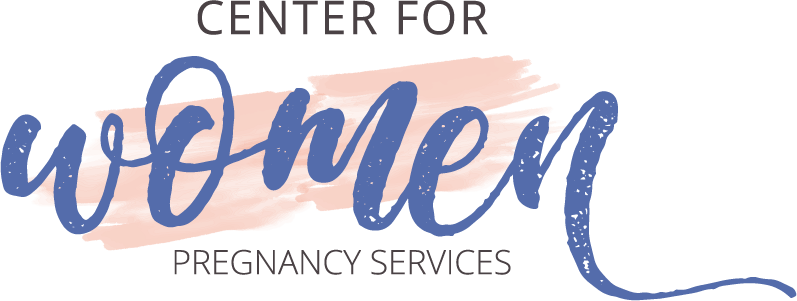Your period has started. You’re menstruating. Your “cycle” has begun. No matter what terms you care to use, the time has come yet again to stock up on pads, tampons, chocolates and whatever else helps you get through the next 3-7 days. But how much do you know about what’s really going on inside of your body when “that time of month” rolls around?
What is Menstruation?
From the time a young girl starts puberty around age 11 until menopause hits around age 51, menstruation is a very normal part of her life on a (usually) regular cadence. But what’s the point of menstruation?
The menstrual cycle is your body’s way of preparing for the possibility of pregnancy each month. During this cycle, your body creates an environment for a fertilized egg (an egg that has joined together with sperm) to settle into where it can be protected, nourished, and grow into a baby. If pregnancy doesn’t happen, then the lining that has been prepared in your uterus is not needed and sheds, causing the tissues and blood to leave the body through the vagina. In most women, this cycle occurs on a monthly basis, but each individual’s cycle is slightly different (with the process itself being the same).
You’ll often hear that a missed period is one of the earliest signs of pregnancy. If the lining of your uterus doesn’t shed (ie, your period doesn’t start), it’s a pretty telling indicator that a fertilized egg may have implanted in the uterus and pregnancy has started.
Phases of the Menstrual Cycle
Fluctuations of your hormones initiate various steps, or phases, in your menstrual cycle. These hormones cause the different reproductive organs in your body to respond in different ways, which trigger the phases of your cycle. The 4 phases of your menstrual cycle are:
The menses phase: (around day 1-7)
The menses phase begins on day 1 of what is most commonly referred to as your “period”. During this phase, if pregnancy has not occurred, the body sheds the lining of the uterus through your vagina. This phase consists of bleeding and various other symptoms (such as abdominal pain and mood swings).
The follicular phase: (around day 1-14)
The follicular phase overlaps the menses phase. It also begins on the first day of your period, but ends at ovulation. In this phase, the lining of the uterus regrows itself and thickens after the menses phase is complete. It also causes an egg in your ovaries to fully mature and prepare to be released.
Ovulation: (around day 14)
Ovulation is the event of the egg being released by the ovary. It is during this phase when you are most fertile (meaning you are most likely to become pregnant).
The luteal phase: (around day 14-28)
The luteal phase starts with ovulation, and overlaps as the follicular phase does with the menstrual phase. During this phase, the egg moves down the ovaries, travels down the fallopian tubes and into the uterus. If the egg is fertilized during this time, then it will become implanted into the lining of the uterus and pregnancy begins. If the egg is not fertilized, then the cycle will start over completely with the menses phase.
What Is a “Normal” Length for My Cycle To Be?
The average menstrual cycle length for women is typically around 29 days, ranging anywhere from 21 days to 35 days. If your cycle is shorter or longer than average, it doesn’t necessarily mean there’s something wrong. There are some factors that can cause changes to your period from time to time, such as:
- stress
- hormone changes
- medications
- illness or other health conditions
Irregular Periods Explained
If your period tends to be off a day or two every month or is a bit lighter or heavier than usual on occasion, this is still considered to be a “regular” period. An irregular period is one that is significantly inconsistent in terms of timing, symptoms and some other characteristics. Below are some examples of what may be considered an irregular period:
- missing three or more periods in a row
- bleeding that is either much heavier, or much lighter than usual
- periods with bleeding that lasts more than 7 days
- periods that are less than 21 days, or more than 30 days apart
- the length between two periods varies more than 9 days
- bleeding or spotting that happens during times that are not your normal period
If your period is late or has stopped, it’s very important to check to see if you are pregnant. Center for Women can help you confirm or rule out a pregnancy with our free pregnancy testing.
An irregular period can be caused by any number of factors. If you notice a significant change to your period, any necessary treatment will depend on what is causing it. In this case, you’ll want to contact your doctor, who can help figure out what may be affecting your periods.
Tips for Battling PMS
PMS, which stands for Premenstrual Syndrome, refers to the physical and emotional symptoms that pop up before and/or during your period. Of course every woman is a bit different. Some lucky ladies may experience very minimal symptoms, while others might have more intense symptoms that can even start to impact quality of life for a short time.
While some medicines can certainly help in relieving some of these symptoms, there are some other tips and tricks you can try if you find yourself battling uncomfortable symptoms every month:
Get regular exercise throughout the month – while exercise might sometimes feel like the last thing you want to do when you’re on your period, making sure you get some regular activity in during the month can help with some PMS symptoms, such as irritability and fatigue.
Make sure you’re getting enough sleep – lack of sleep is actually linked to depression and anxiety and can make PMS mood swings worse.
Find healthy outlets when you feel stressed or down – spending time with your friends or doing hobbies you enjoy can help boost your mood. Journaling is a great way to get your feelings out and some women find that meditation and yoga can be helpful as well.
Choose healthy food options – you don’t have to completely change your diet, but cutting back on food and drinks that contain a lot of caffeine, salt, and sugar before your period can help to lessen some of your symptoms.
Drink lots of water – even when you’re not on your period, staying hydrated equips your body to better manage physical discomfort (including menstrual cramps). It also helps to prevent bloating and increases your energy levels.
No matter how you choose to stay comfortable during your period, there is relief in knowing that the symptoms are completely normal and most often temporary.
Benefits of Understanding Your Cycle
Having some insight into what’s happening in your body on a regular basis can certainly have its benefits. By tracking and being more aware of your cycle, you can:
- understand when you are most and least fertile (which can help if you are trying to get pregnant, or if you’re trying to avoid it)
- be more in tune to what is “normal” in your body, which can help clue you in on potential medical issues, if they arise
There are so many resources such as apps, calendars and journals available these days that can help you to track your menstrual cycle (many of which are free!). At a minimum, it’s great to have a basic understanding of your menstrual cycle and to be aware of the approximate time of month when you might expect it to start.
Be sure to contact your doctor or gynecologist if you have any questions or concerns about your own menstrual cycle.
If you have missed your period or your period is late and you think you may be pregnant, Center for Women offers free pregnancy testing to help you know for sure. Contact us today to schedule an appointment.
References:
https://my.clevelandclinic.org/health/articles/10132-menstrual-cycle
https://my.clevelandclinic.org/health/diseases/14633-abnormal-menstruation-periods
https://www.hopkinsmedicine.org/health/wellness-and-prevention/menstrual-cycle-an-overview
https://www.healthline.com/health/womens-health/what-age-do-girls-get-their-period
https://my.clevelandclinic.org/health/diseases/21841-menopause

